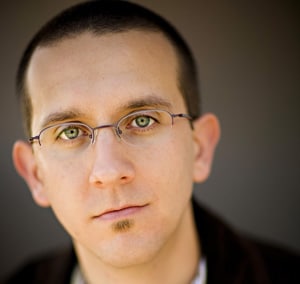
Heath Haussamen
Congress is considering legislation that could be used to place hurdles in front of people’s First Amendment rights. While protecting intellectual property rights is a worthy goal, this legislation is not the way to do it.
I’m a big fan of protecting intellectual property rights. Unlike some sites, I work hard to respect others’ copyrights and only use images with permission. When I’m quoting others’ articles, I link back to them and don’t post too much of their text on my site.
A desire to respect others’ intellectual property rights is one reason I moderate comments on this site. On a weekly basis I reject comments in which people have posted entire articles from other news organizations without permission.
I understand how widespread copyright infringement is on the Internet. More than once I’ve billed a candidate or political committee for using my images of politicians in TV ads and mailers without my permission.
All that said, I oppose the current attempt in Congress to deal with the widespread disregard for intellectual property rights on the Internet. In the House it’s called the Stop Online Piracy Act, or SOPA, and you can read the bill here. In the Senate it’s the Protect IP Act.
Today I’m joining many sites, including Wikipedia, Google and Reddit, in protesting the legislation and asking you to help defeat it. Wikipedia has gone black. You can’t use it right now. For other sites, like Google and NMPolitics.net, going black isn’t practical (especially during the legislative session, I can’t take this site offline), but we’re still protesting.
Though the bill might be intended to protect property rights, it could be used to place hurdles in front of people who use the Internet to organize or for other valid reasons. It’s the newest step Washington is considering taking in a slow but steady pushback against people’s rights. It’s time to make a stand.
The concerns
CNN sums up the concerns about the legislation like this:
“Both sides say they agree that protecting content is a worthy goal. But opponents say that the way SOPA is written effectively promotes censorship and is rife with the potential for unintended consequences.
“… (The legislation) potentially puts site operators – even those based in the U.S. – on the hook for content that their users upload. The proposed bill’s text says that a site could be deemed a SOPA scofflaw if it ‘facilitates’ copyright infringement.”
And, as Mashable.com explained, that could lead to the government shutting a site down.
21st Century town squares
This isn’t about NMPolitics.net. As I said earlier, I work hard to respect people’s property rights and I’m not really worried that such a law would impact this site. But websites like YouTube and Facebook would be dead if this legislation became law. People post things all the time on those sites that they don’t own.
Some people say such sites should police what people post and sort out the copyright violators from the rest, or be shut down. While I agree that they should make serious efforts to support intellectual property rights, they shouldn’t be shut down when they fail. It isn’t as though we go after the towns in which people or groups post fliers on public walls or billboards that include images they don’t have permission to use. If we go after anyone, it’s the people or groups that illegally use the images.
Sites like Facebook, Twitter and YouTube are our 21st Century town squares. As I wrote recently, they’re the tools that bring a new level of democracy to the world. People use such sites to organize, motivate action, shine light on important problems, discuss issues, and bypass the machine that is the mainstream media.
Even if they’re trying to ensure that people don’t post video, music and other intellectual property they don’t own, such sites will fail from time to time.
But this legislation doesn’t account for that. Its wording is imprecise enough that it can be interpreted broadly, which inevitably means someday someone with the authority to enforce it would do just that.
A hurdle in front of peoples’ rights
If this legislation becomes law, it could be placed as a hurdle in front of peoples’ First Amendment rights. Maybe someone in authority, who wants to shut down a site like Facebook because people are using it to organize for a cause he opposes, would find an unrelated copyright infringement on Facebook and then use the law to attempt to shut the site down.
I recently expressed concern about another law the president has since signed that could be interpreted to allow the indefinite detention of Americans deemed terror suspects. In that column, I questioned the reasons people end up on the terrorist watch list:
“Will I someday end up on the list for writing something critical about a government official? Will this commentary land me on that list?”
Then more recently, we learned that the Department of Homeland Security is monitoring journalists’ use of social media.
Now Congress is considering legislation that would allow the shutting down of websites that people across the world are using to organize and challenge the powers-that-be. The pattern is frightening.
We can’t allow this. Democracy is too important to sacrifice in exchange for the music and film industries having an easier time protecting their copyrights. I’m fine with members of Congress seeking ways to better protect intellectual property rights, but they need to go back to the drawing board.
